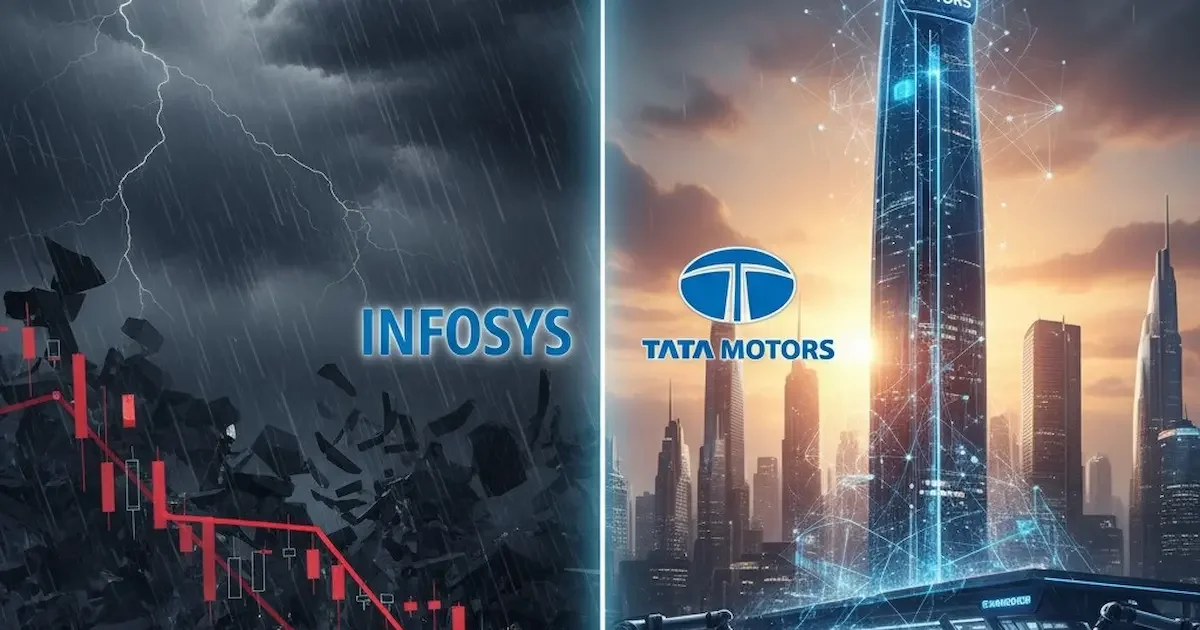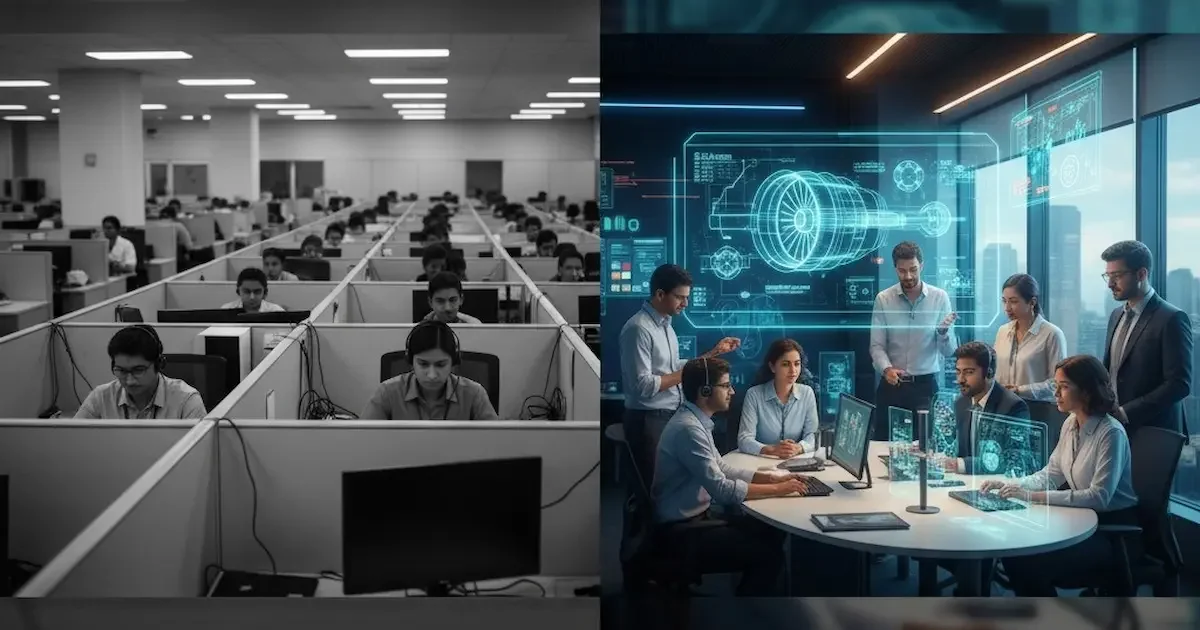Alright, let's get straight to it. Anyone with a pulse on the Indian market knows the vibe right now is… tense. We're staring down the barrel of global economic weirdness, tech is in a tizzy over everything from AI disruption to insane US visa fee hikes, and the auto industry is navigating a seismic shift towards electric vehicles. The sentiment? "Challenging" is putting it mildly.
And yet, in the middle of all this hand-wringing and cautious pessimism, what are the big boys doing? They're dropping serious cash like it's going out of style.
Infosys, the titan of Indian IT, just announced it's pumping ₹300 crore into a new campus in Mohali. That's not pocket change. And it comes at a time when the entire Indian IT sector is bracing for impact from generative AI potentially eating their lunch and a sudden, brutal $100,000 H-1B visa fee in the US that has sent shockwaves through the industry.
Meanwhile, Tata Motors, the behemoth of our roads, is on an absolute tear. They're talking about launching over 140 new products and 700 variants in their commercial vehicle wing and aggressively "mainstreaming" their electric vehicle lineup with new launches like the Harrier.ev and Sierra.ev. This is happening even as the global auto market faces headwinds and a complex, expensive transition to electric.
So, what the hell is going on? Are these companies delusional? Or are they playing a different game entirely?
The "When They Zig, We Zag" Strategy
Here's the thing. Playing defense is easy. When the market looks shaky, the default move is to cut costs, freeze hiring, and hope for the best. It's safe, it's predictable, and it's what most companies do. But the giants, the ones that stick around for generations, don't just play defense. They see a downturn not as a crisis, but as an opportunity.
While smaller players are hunkering down, companies like Infosys and Tata are laying the groundwork for the next decade. They're betting on the future, not just reacting to the present.
For Infosys, the Mohali campus isn't just about adding office space. It's a strategic move. The IT world is changing. The old model of throwing bodies at a problem is dying. The future is in higher-value services, AI integration, and having talent hubs in diverse locations. By investing now, they're building the infrastructure they'll need to compete in this new landscape. They're also sending a clear signal: while others are spooked by AI and visa issues, Infosys is confident enough to double down on its talent and growth in India. And let's not forget their massive ₹18,000 crore share buyback – a power move that screams confidence in their long-term value.
Tata Motors is pulling the same move in a different arena. The global auto industry is in a state of controlled chaos. The shift to EVs is a bloodbath of R&D costs and new competition. But Tata isn't just dipping a toe in the water; they're trying to own the Indian EV space. By aggressively expanding their EV portfolio and simultaneously refreshing their commercial vehicle lineup, they're not just waiting for the market to recover. They're actively shaping it. They're building a product pipeline so robust that when consumer sentiment does bounce back, they'll be the default choice, from a small commercial truck to a family-sized electric SUV.
Playing the Long Game in a Short-Term World
This isn't about ignoring the risks. The challenges are very real. The Indian IT sector's growth has slowed dramatically, and the rise of in-house Global Capability Centers (GCCs) is a genuine threat. The automotive market, while showing positive signs, is still susceptible to global supply chain disruptions and shifting consumer priorities.
But what separates these companies is their time horizon. They're not making decisions based on this quarter's earnings call. They're making calculated bets on India's long-term story.
They know that despite the current headwinds, India's domestic market is a juggernaut. Our economy is still growing, our workforce is young, and our appetite for technology and mobility is only going to increase. These investments are a fundamentally optimistic bet on India itself.
While everyone else is busy reading the scary headlines, companies like Infosys and Tata Motors are writing the next chapter. It's a gutsy, counter-intuitive strategy. And in a world filled with uncertainty, it's the kind of bold, forward-looking thinking that doesn't just survive the storm—it sails right through it.

